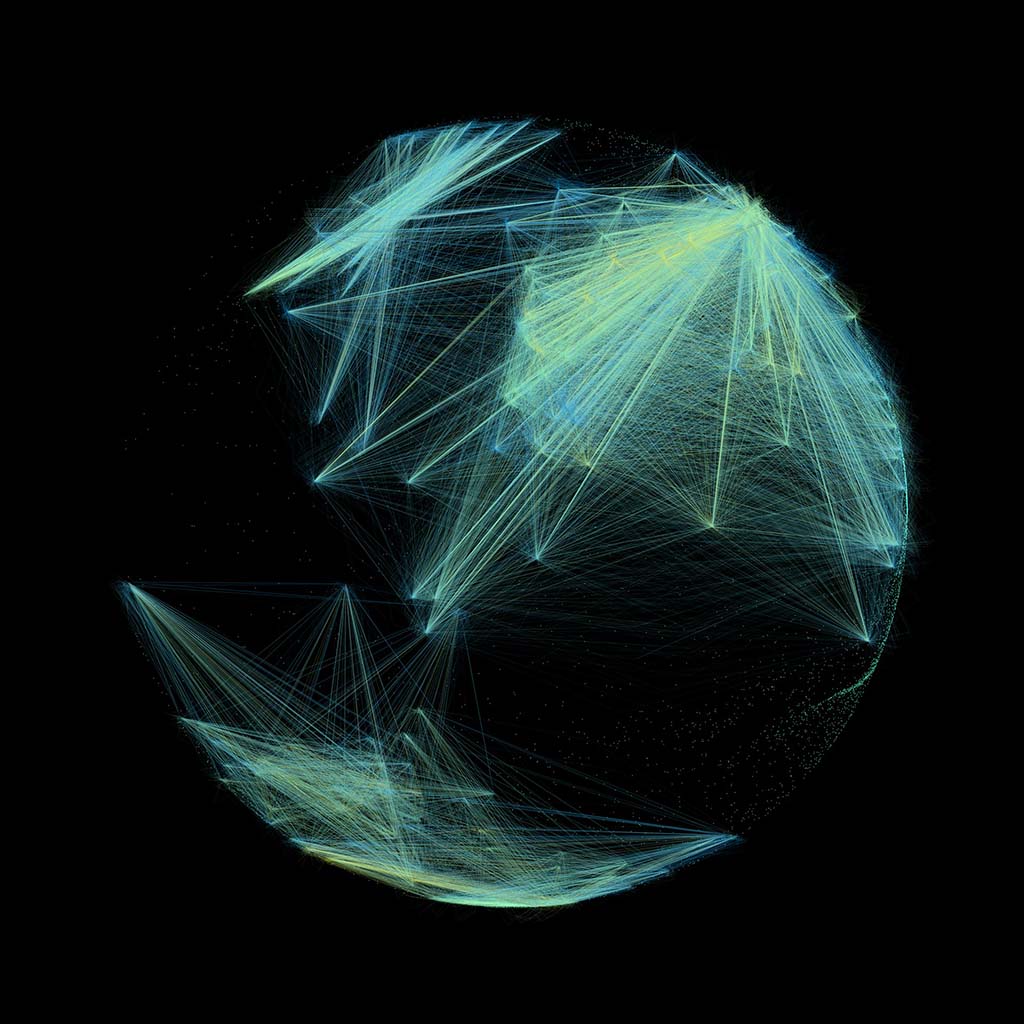Space has become more accessible than ever before and has the potential to transform life on Earth. But, only if fundamentally new ways of perceiving, designing, and operating these systems are established. The next space age will necessitate new methods and insights to operate spacecraft as networked systems rather than isolated, individual objects, driving a shift from individual spacecraft to large networks of cooperative, self-organising satellites.
We are developing insights to network systems across the natural sciences to engineer vastly more connected, efficient, and sustainable space systems.

Learning Made Useful – Case Studies

Dynamics, resources, and consensus
We are developing new, analytical insights and algorithms into decentralised network systems. We’ve developed algorithms from leadership selection, community detection, and consensus and synchronisation.
We’ve applied our insights, methods, and algorithms to from starling flocks to Internet of Things, IoT, sensor networks, and from study of neurological conditions such as Autism and Alzheimer’s, and patient flow through a hospital, to the spread of contagion in populations.
In a 42-patient test of patients suffering breathlessness, our methods identified 38.5 years of potentially unnecessary delay and prevented at least 9 years of treatment delay.
Agile Space Systems
Approaching the space system as a network we’re empowering a shift towards large networks of cooperative, self-organising satellites. In a congested and contested space environment, resilience is essential and traditional paradigms are unfit for purpose.
We have developed methods to deliver agile, decentralised, and autonomous constellations and space systems. We’ve developed analytical insights and methods to enable new and novel concepts of operations and maximise system flexibility, responsiveness, and function. Using our insights from network systems we’ve even created agile and responsive space systems without the need to manoeuvre any spacecraft.


Delay and Disruption-Tolerant Networks, DTN
We have developed novel routing algorithms at the network layer to gain insights to, and support development of DTNs, with applications from constellations of spacecraft and integrated ground, air, space systems, to logistic and delivery networks, through to the solar system internet.
We’ve developed a unique approach to satellite task scheduling, addressing the challenges associated with traditional, linear programming solutions. We have applied our research on network systems, astrodynamics, spacecraft constellations, novel inter-satellite data routing, and on constellation management and ground station selection in the €19.7Mn xSPANCION Pioneer Partnership Project to develop and deploy an innovative satellite constellation service.

